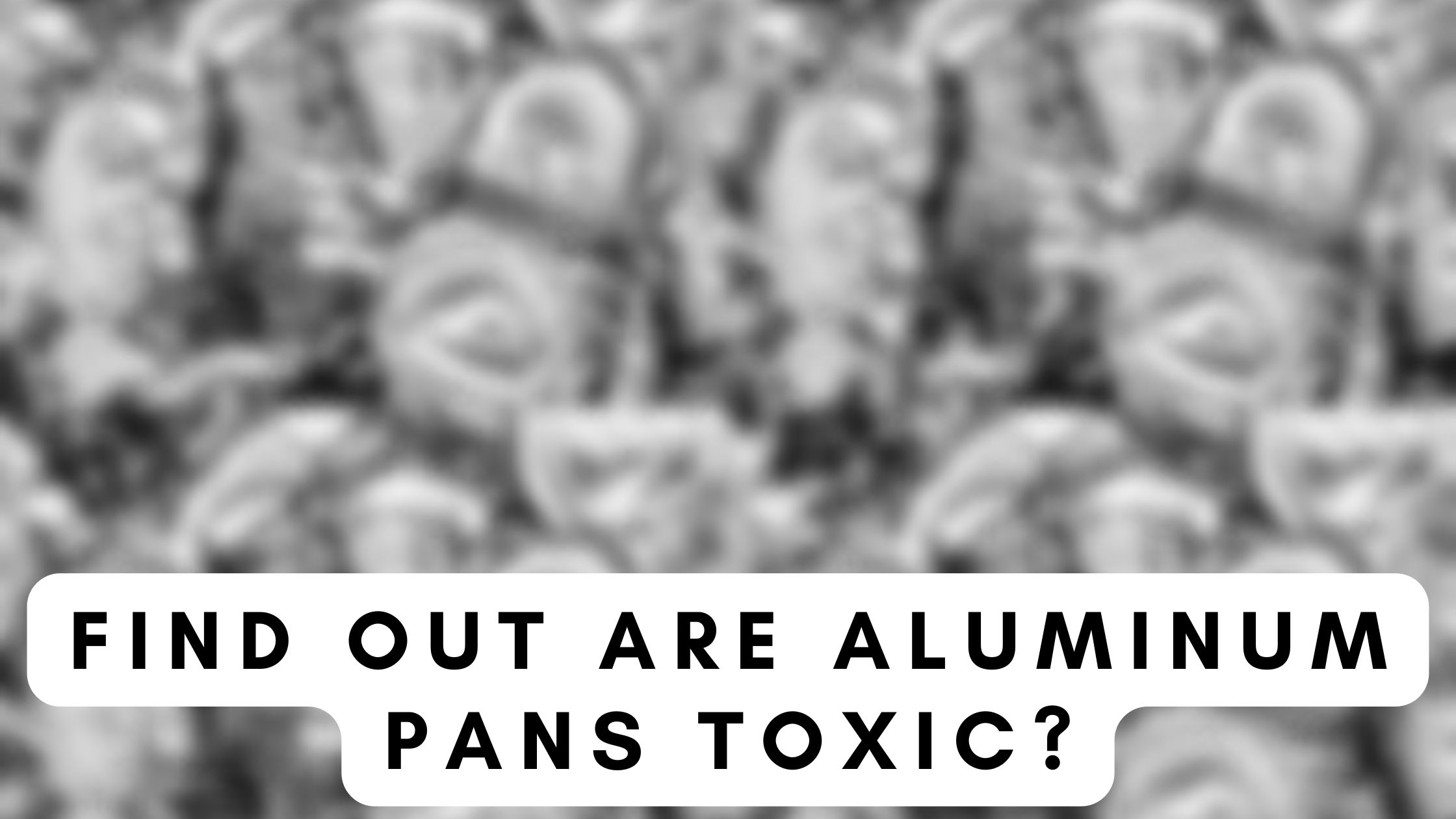You have various options when buying new pans, including size, material, and colour. Aluminum is a common material choice because of its great heat retention capacity.
It’s understandable to wonder if aluminum is safe to use for cooking given that it’s frequently used in industrial, non-cookware settings—and, for the most part, it is.
Aluminum is a metal distinguished for its malleability and low weight. As a result, it is a widely used material inside and outside the kitchen.
Since it occurs naturally, it is neither dangerous nor poisonous exposure to modest amounts of it.
Here are the safety considerations for using aluminium in cookware.
Are Aluminum Pans Toxic
Although aluminium has been linked to Alzheimer’s disease, the connection has not been confirmed. According to the World Health Organization, humans can ingest up to 50 milligrammes of aluminium per day without experiencing any negative effects.
Aluminum is a common material for cookware because it is lightweight, can withstand high heat, and costs much less to create than stainless steel.
It’s safe to cook and eat from, but because it’s cheap to create and buy, there are several foods to avoid while using an aluminum pan.
Aluminum dissolves more quickly in old or pitted pots and pans while cooking. The longer food is cooked or kept with metal, the more aluminium enters the meal. Aluminum is best absorbed by leafy greens and acidic meals like tomatoes and citrus fruits.
When Should You Avoid Using Aluminum?
Aluminum is a reactive metal that reacts chemically with acidic components such as tomatoes, wine, or citrus. If you cook using an aluminium pan, this might cause a tinny or metallic flavour in your meal.
Furthermore, alkaline foods such as egg whites can get stained after cooking on a reactive surface, turning an unsightly grey.
These interactions can cause aluminium to seep into your food and even pitting on the pan’s surface over time. It’s time to replace your pan if it’s pitted and your food has a continuous metallic taste.
Can Aluminum Containers Be Used In The Oven?
Aluminum containers may be used in the oven. Because aluminium is an excellent conductor, it conducts heat evenly, which improves oven cooking. There is no possibility of breaking, melting, charring, or burning.

Because they are lightweight and sturdy, aluminum containers are ideal for storing and keeping food.
Aluminum shields meals from oxygen, humidity, and pollutants making it perfect for low-acid, low-salt dishes.
Furthermore, with the proper coatings, all aluminum food containers can endure retort pasteurization and sterilization procedures, as well as acid and salty food deterioration. Furthermore, they are completely recyclable.
Alternatives To Aluminum Pans
There are alternatives if you don’t want to bother about cooking with certain ingredients or about ruining your pristine metal pan.
Stainless Steel
First, stainless steel is a viable aluminum substitute. Stainless Steel frying pans will have an aluminum core surrounded by stainless steel—so you’re not cooking on straight metal but still enjoy aluminum’s outstanding heating capabilities.
These pans are made of nonreactive 18/10 Stainless Steel, so you don’t have to worry about your cookware components leaching into your food.
Non-stick
Non Stick Cookware may be your best option if you’re seeking for an aluminum alternative that’s easy to cook with and even easier to clean.
Nonstick cookware with a non-toxic PTFE coating will never leach into your food, providing you with a flawlessly smooth cooking surface that doesn’t require oil or butter.
What You Should Know About Aluminum Cookware
Aluminum may leak out of your cookware and into your food, which is widely acknowledged. This happens faster if you cook with acidic substances or if you use aluminum cookware that erodes more rapidly than others.
Because of a protective coating, aluminum cookware in the United States often leeches less quickly. But how much “less” is “less”?
According to one source, the tomato sauce was cooked in an aluminum saucepan for two hours and then kept in the same pot overnight.0024 milligrams of metal per cup.
The recommended weekly consumption is one milligram of aluminum per kilogram of body weight. In other words, a 150-pound individual might comfortably ingest 68 mg every week.
Other sources of exposure are even more concerning than kitchenware. Aluminum levels are higher in medications such as antacids and anti-ulcerative.
Aluminum-containing chemicals, such as sodium aluminum phosphate and sodium aluminum sulfate, are often used in processed foods.
In the kitchen, metal leaching from aluminum foil is substantially more than with aluminum cookware.
Is Aluminum Pan Suitable For Frying?
An aluminum pan is an excellent choice for frying. It is lightweight, inexpensive, and heats up quickly.

However, it does not maintain heat well, so the temperature will drop when food is added to the pan. If you are looking for a pan that will keep the heat constant, an aluminum pan is not the best choice.
However, if you are looking for a pan that heats up quickly and is easy to handle, an aluminum pan is a great choice.
Conclusion
It is safe to say that aluminum pans are not toxic. you can use them with peace of mind, knowing that your food will not be contaminated.
However, it is still important to take care of your pans and avoid cooking acidic or citrus foods in them, as this can shorten their lifespan.
All in all, aluminum pans are a great choice for cookware, and they will not pose any threat to your health.

